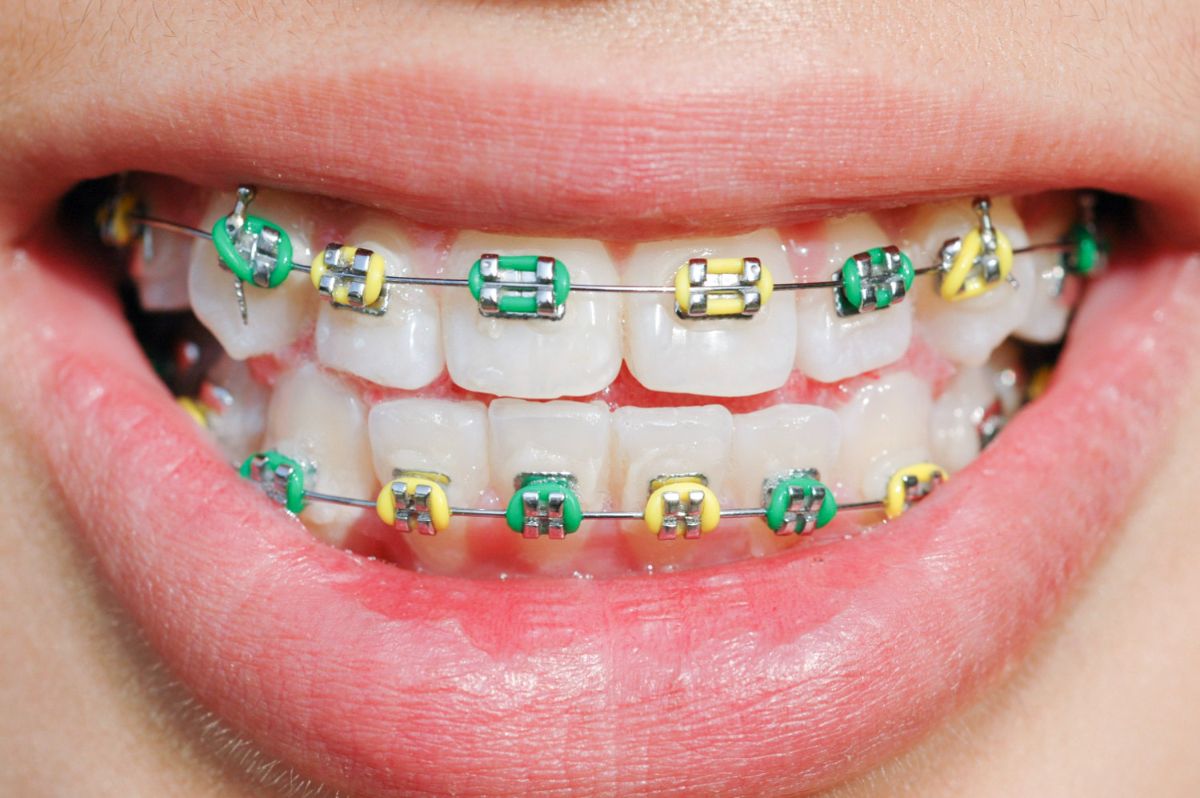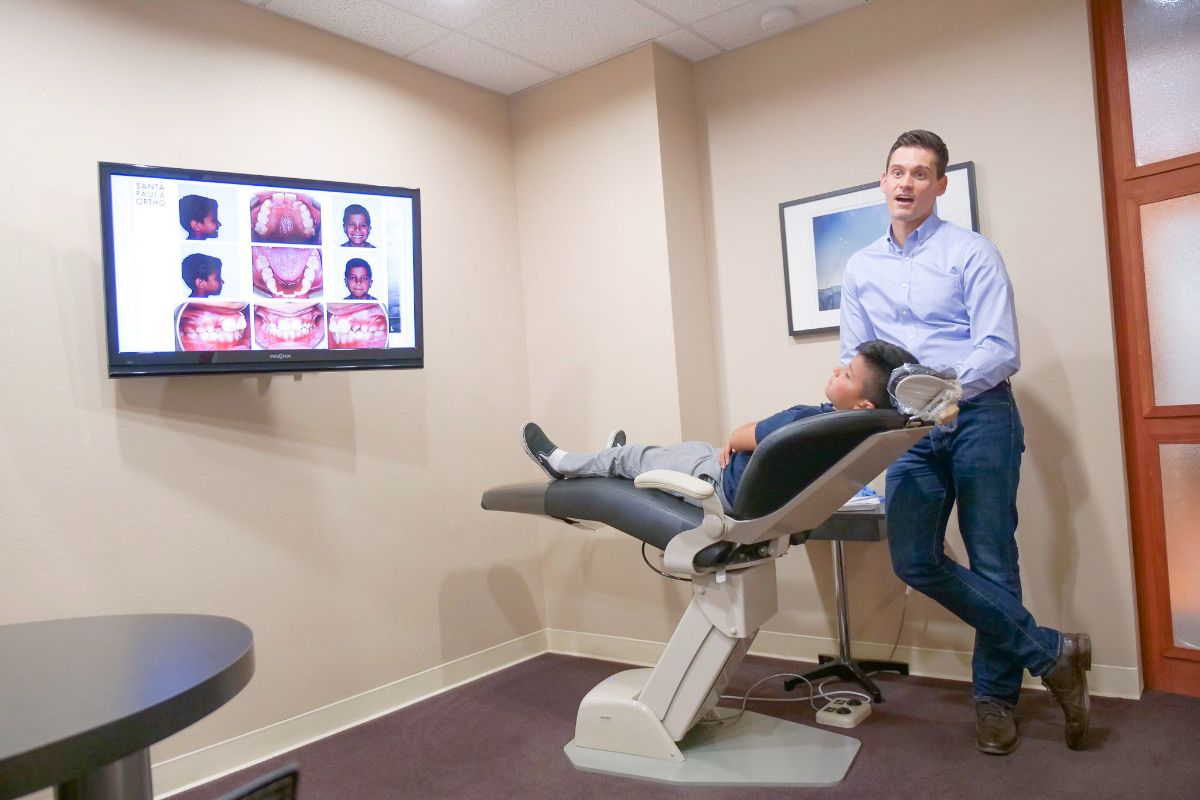If you are looking into the prospect of getting braces, it’s normal to be a little apprehensive. You’ve likely only heard the worst possible things about the metal apparatuses of old and, like a game of telephone, the legends grow with each report. Here at the orthodontic offices of Dr. Jared Lee, we believe an informed patient will have the most effective treatment, so let’s debunk the top ten braces myths and get you on your way to a confident smile!
#1: Braces are only for kids
Metal-clad teeth on teens may be what you think of with orthodontics, but it’s simply not the case. Orthodontic treatments aren’t just for children and teens. Your teeth are capable of being adjusted with braces at any point, provided that you have healthy gums and jaw bone structure, but some issues may be easier to treat when you are younger. With metal and clear braces and Invisalign options, orthodontic treatment is possible and beneficial for all ages. Whether you require a full or limited orthodontic treatment, Dr. Lee will ensure that you achieve a healthy and beautiful smile.
#2: Braces are just for cosmetics
Though braces are most commonly used for cosmetic reasons, they do much more work under the surface. Many cosmetic concerns can also be functional concerns that affect your speech, chewing, digestion, sleep, and even your breathing. Tooth crowding can make it difficult to properly floss and clear plaque and debris. A misaligned bite can lead to poor oral health overall. Fortunately for most patients, jaw misalignment or malocclusion can be easily remedied with braces.
#3: “Ouch!” Braces are painful!
While the initial application of your braces may cause some discomfort and tight feelings, this quickly dissipates as your teeth learn to adjust to the metal appliances. There may also be some soreness and irritation during your routine adjustment appointments that you may notice, as well. Overall though, your braces should not cause any actual lasting pain and the discomfort you may or may not experience does not affect the efficiency of your braces.
#4: Metal braces are the only option
Every patient has different needs and smile goals, and there are options and combinations to suit them all. While bracket-and-wire braces are typically the traditional metal, there is also a clear, ceramic option. Here at the orthodontic offices of Dr. Jared Lee, we also offer a clear aligner option called Invisalign to be used in place or in combination with your standard braces treatment plan.
#5 Braces have to be on for a long time to work
It can take time to adjust your teeth, and if you need more in-depth jaw adjustments, you can expect it to take a little longer. Braces make small changes that allow your mouth to adjust and be manipulated, and doing this too quickly would be very painful and could cause damage to your teeth. Most orthodontic patients tend to spend anywhere from 12 to 36 months in treatment and adjustments, and it can vary depending on your oral health and your goals.
#6: Braces straighten your teeth forever
Though this would be a really nice perk for the experience of braces, it simply is not valid. Once you are finished with your braces portion of your orthodontic treatment, your mouth becomes vulnerable as your teeth attempt to shift back into the place they were before braces. To allow your jaw time to grow and support the adjustments that were made, you will need to wear a retainer that keeps pressure on the teeth to keep them from moving. This will be a removable device, but you will need to wear it regularly as instructed to ensure that the adjustments made while wearing braces are not compromised.
#7: Constant Wire Changes
Adjustments during your regular follow-up visits should be expected and there may be reasons for the wire to be exchanged at certain points in your treatment plan but they likely will not be as frequent as you’d expect. Most of the visits will consist of your doctor making minor adjustments and visually inspecting the movement to be sure you are progressing as you should be.
#8: You are limited in what you can eat with braces
To ensure the best possible outcome from your experience with braces, you should avoid foods that may damage the appliances, or that can be difficult to clean from on and around the braces themselves. Foods that are crunchy like raw apples and carrots, nuts, and popcorn, and sticky foods like candies with caramel and taffy can cause your appliances to break and even cause damage to your teeth, tongue, and gums. Most other foods will not pose a problem in eating or proper oral care. And it’s good to remember that this is a quick process.
#9: You can’t play particular sports or instruments
You should always protect your teeth and mouth when playing sports or instruments, especially when you have braces. While having traditional braces will not keep you from playing football, it is advised that you wear a protective mouthguard just to be safe from the impact that could damage your braces themselves but could also cause your braces to cut the insides of your mouth. And don’t give up those brass and woodwind instruments just yet. The discomfort and added devices in your mouth may require a bit of adjustment while playing, but it shouldn’t keep you from enjoying making music.
#10: What about rust, metal detectors, and lightning?
The possibility of your braces rusting or causing you to be struck by lightning is a scary thought but simply isn’t founded in facts. This treatment is designed using small amounts of materials like titanium and stainless steel, which are anti-corrosive and not vast enough to act as a lightning rod or set off metal detectors. 
Trust the at the orthodontic offices of Dr. Jared Lee
The prospect of braces doesn’t have to be scary, and we hope to bust some of these silly myths. We encourage you to reach out for your FREE consultation with our expert team at the orthodontic offices of Dr. Jared Lee in Oxnard and Santa Paula to get started on your personalized journey to a healthy and happy smile.
